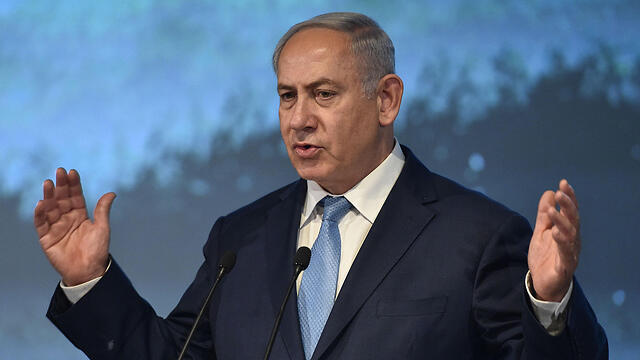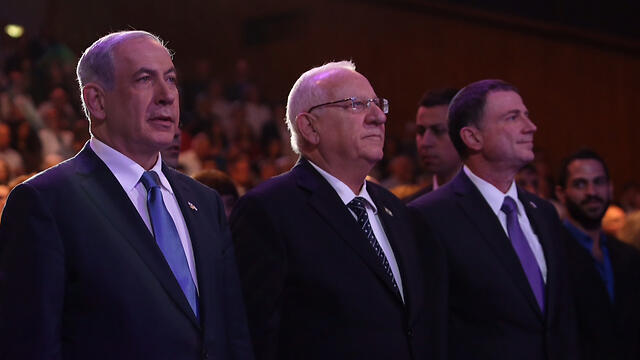Getting your Trinity Audio player ready...
The submarine affair is the most dangerous affair concerning Prime Minister Benjamin Netanyahu. While all other affairs are considered by Netanyahu's political base as insignificant (“a government isn’t toppled over cigars and champagne”), recent reports that the prime minister will be asked to give a testimony in the affair, and may even be questioned under caution, as journalist Amnon Abramovich reported, could deeply stain Netanyahu.
Last week, Ynet correspondent Eli Senyor revealed the code names used by the people involved in the affair, according to state witness Miki Ganor. They referred to Netanyahu as “the friend.”
2 View gallery


Netanyahu. How is it possible that his close associates allegedly made a profit from Israel’s most important security purchase and he didn’t know about it?
(צילום: AFP)
From everything that has been revealed so far, this isn’t just another bribery affair. This isn’t a case of rigging road-building bids; it concerns the holy of holies—the State of Israel’s security. If Netanyahu's name is actually linked to the submarine affair, whether through a testimony or—God forbid—a criminal investigation, he is expected to suffer huge political damage.
Even if Netanyahu's legal line of defense (“I didn’t know”) is accepted, he may suffer heavy public damage if the affair leads to police recommendations and even indictments. How is it possible that his close associates allegedly made a profit from what appears to be Israel’s most important security purchase in recent years, a purchase he was personally and closely in charge of, and he is the only one who didn’t know about it?
Or as Yesh Atid leader Yair Lapid told the Knesset recently, “I have known Netanyahu for 20 years. something like this wouldn’t have slipped under his radar in the past.”
Long-standing tradition broken
In addition to his big troubles, Netanyahu has small troubles too. In a recording leaked last week, Knesset Speaker Yuli Edelstein is heard criticizing Netanyahu in not so stately words.
Edelstein, of course, would rather keep what he thinks about the prime minister to himself, but the recording revealed the battle which is already taking place behind the scenes between Likud faction members over who will replace Netanyahu without elections if he is suddenly forced to step down.
The political system remembers very well what happened to Ehud Olmert. No one thought he could be prime minister before Ariel Sharon collapsed, but several months later people said: “Well, he’s actually doing an excellent job.”
The silent battle between Edelstein and Netanyahu, which actually turned noisy last week, has to do with Israel’s upcoming 70th Independence Day as well and with Culture Minister Miri Regev’s suggestion that the prime minister would deliver a speech at the torch-lighting ceremony, although the highest-ranking speaker at the ceremony is traditionally the Knesset speaker.
The tensions at the top have been reflected in recent weeks in the dissolution of an old Knesset custom. Over the years, before every official event held at the Knesset, the prime minister, the president, the opposition leader, the Knesset speaker and their partners would meet at the speaker’s bureau and go up to the Knesset plenum together. But as there is no love lost between this trio—Netanyahu, Edelstein and Reuven Rivlin—this old, dignified custom has been ignored in all official events held at the Israeli parliament recently.
A long-standing tradition has been broken because of terrible relations. It happened during the Knesset’s opening session, during US Vice President Mike Pence’s official visit and during the Knesset’s 69th birthday celebrations last week. Rivlin may have been on an official visit to Greece on the last occasion, but Edelstein and Netanyahu have been regularly avoiding this custom for a long time now.
These tensions are beginning to resemble Netanyahu's battle several years ago against a different Knesset speaker from the Likud, Reuven Rivlin, which cost Rivlin his job as Knesset speaker in favor of Edelstein. Judging from this chain of events, Edelstein may go on to replace Rivlin in his current position as well.


